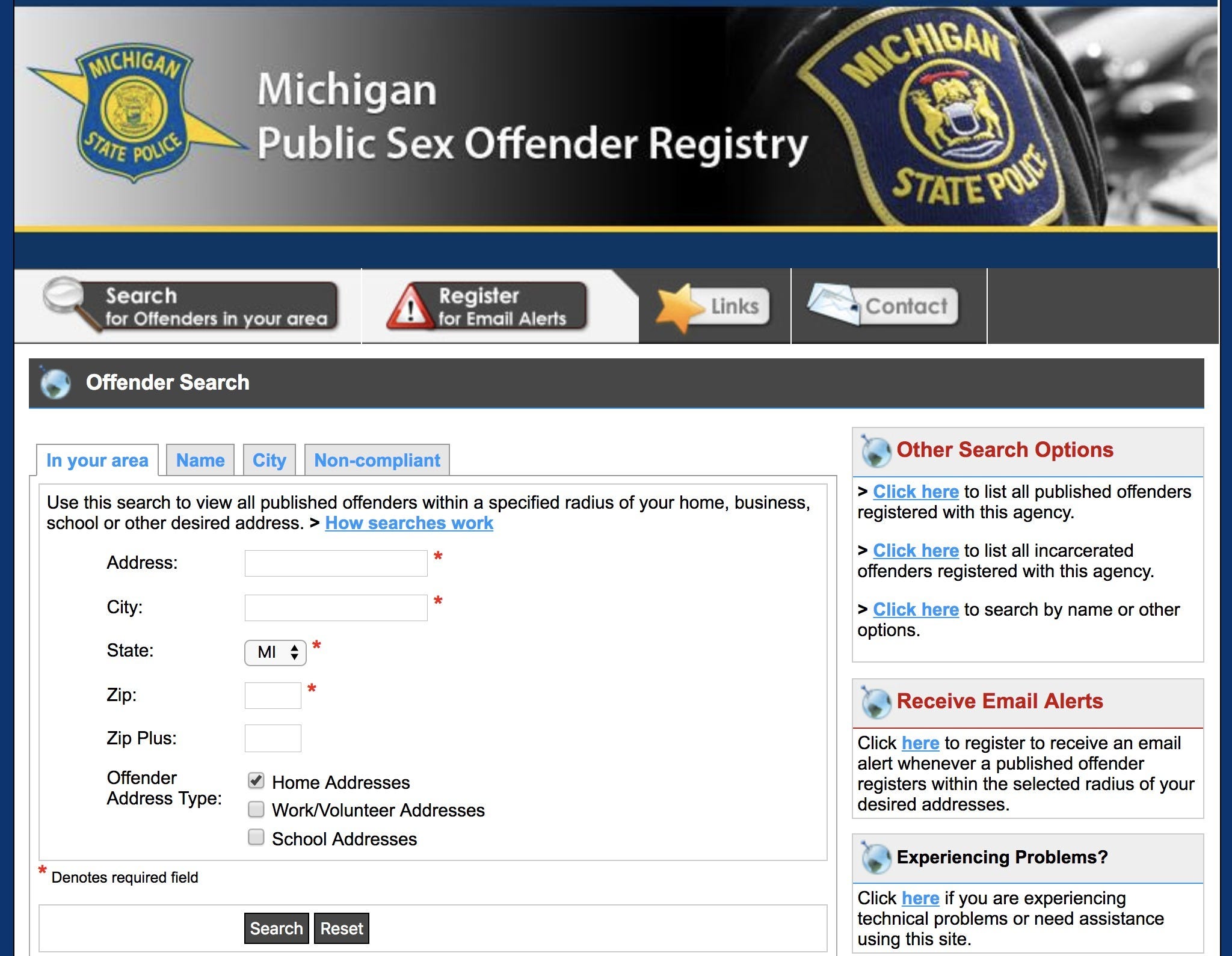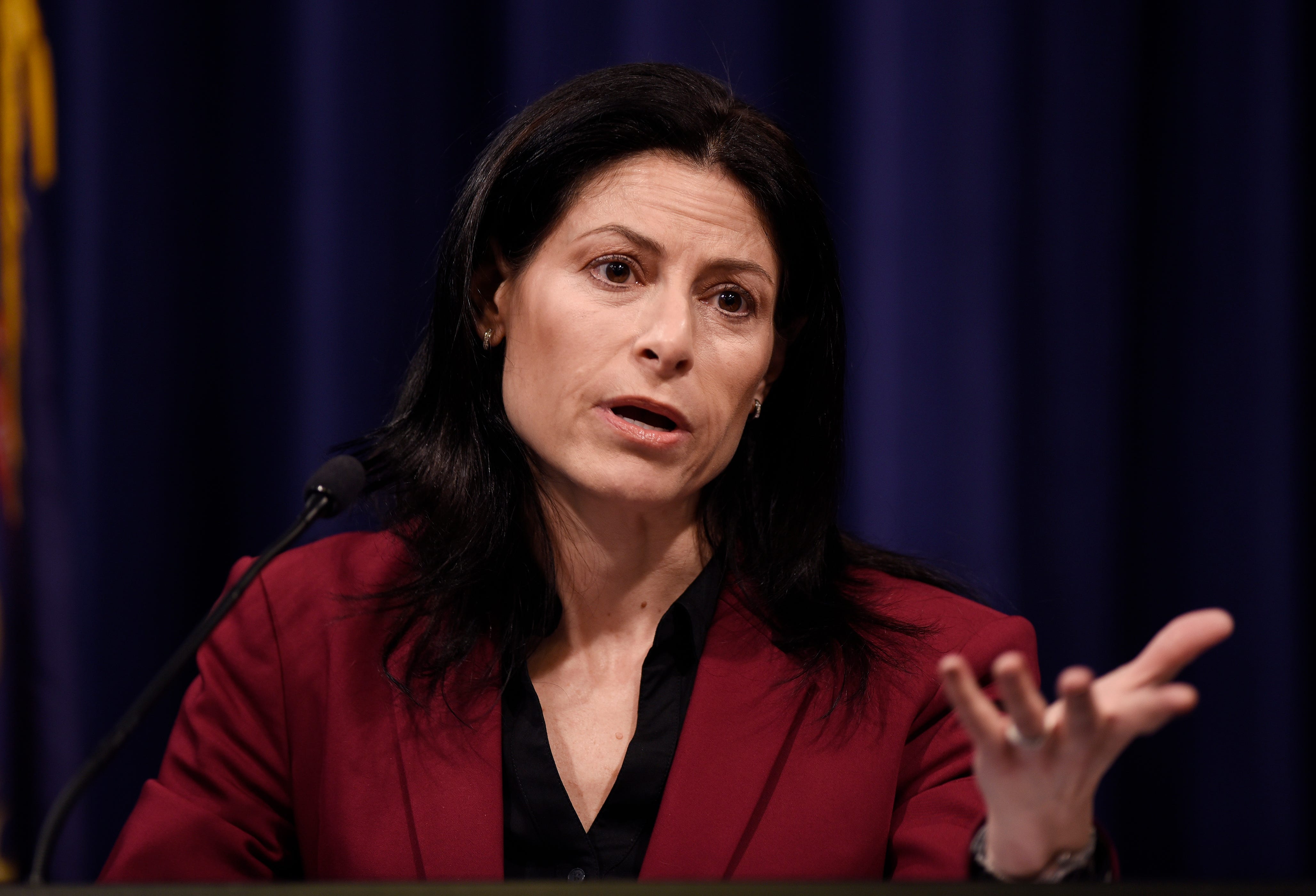Michigan lawmakers debate changes to states sex offender registry law after court ruling
Michigan lawmakers are debating how to overhaul the state's sex offender registry after a federal appeals court ruled sections of the law are unconstitutional, but Michigan Attorney General Dana Nessel is contending the proposed fixes don't repair the law's flaws.
As Democratic and Republican elected officials wrestle over the best solution to a highly charged issue, a federal judge has freed the state's 44,000 convicted sex offenders from complying with registry reporting requirements because of the novel coronavirus outbreak and confusion about the current registry.
Among the state's registry restrictions the U.S. Sixth Circuit Court of Appeals struck down in 2016 were a ban on convicted sex offenders from living, working or loitering within 1,000 feet of schools and a 2011 revision of the law that put sex offenders back on the registry permanently if they committed a felony after they had served their sentences and had been taken off the registry.
The appeals court ruled that parts of the registry violated the 1st and 14th Amendments, and the constitutional protection against being punished "ex post facto," or retroactively.
Detroit U.S. District Judge Robert Cleland has given the Legislature a deadline to amend the law by no later than 14 days after the coronavirus state of emergency ends. The revised law would need to take effect within 60 days.

If the Republican-controlled Legislature fails to change the law with Democratic Gov. Gretchen Whitmer's approval, the current law would be considered invalid and sex offenders wouldn't have to deal with any reporting requirements. The GOP majority and Whitmer already have had trouble reaching deals on the budget, road repair funding and other controversial issues.
State Rep. Jim Lower, R-Greenville, introduced legislation that would make at least seven changes to the law. They include allowing sex offender registrants who are parents or legal guardians to enter a student safety zone under certain circumstances, and banning individuals from being listed on the registry if they committed a felony after July 1, 2011, and had previously committed a listed sex offense.
Lawmakers and attorneys representing the plaintiffs in the federal suit met May 6 to discuss the bill, which has been the subject of hearings in the House Judiciary Committee.
"Without the changes, the law becomes almost entirely unenforceable," Lower said in an email. "In addition to the court required changes, I believe we have an opportunity to make the law easier to enforce/follow and have a real conversation about which types of offenders should and shouldn't been on the registry and how long they should be required to register."
But in a May 11 letter to the Judiciary Committee, Nessel argued the proposed bill has the same constitutional problems as the existing registry law.
"The bill needs considerably more work if the state is going to avoid future litigation over the constitutionality of its registry," wrote the Democratic attorney general, adding particular areas of concern are the registry's "exclusion zones" prohibiting offenders to live, work or loiter within 1,000 feet of schools, and "its onerous in-person reporting requirements."

Nessel's spokesman Ryan Jarvi declined to comment beyond what was in the letter.
Lower told The Detroit News that lawmakers are taking into consideration the concerns of Nessel and others. "The bill as it was introduced is just a starting point," he said, "and I'm sure the final version will be much different, as is the case with most bills."
Michigan State Police Col. Joseph Gasper has supported abolishing the sections of the law that were found unconstitutional, including the safety zone provision.
"In addition to the historical difficulties often encountered when attempting to define the boundaries of these zones ... the department has been advised by its attorneys ... (that) any effort to retain the student safety zone provisions would almost certainly result in further litigation and a similar determination that zones are unconstitutional and unenforceable," he wrote in a letter to the Judiciary Committee.
Gasper also called for stricter rules governing sex offenders who move to Michigan from other states.
"Any revision of (the law) should ensure and clarify that an individual convicted in another state of an offense requiring sex offender registration in that state should, at a minimum, be required to register in Michigan for a similar duration under substantially similar terms regardless of the date of offense," he wrote.
"Otherwise, registered sex offenders from other states with offenses prior to Michigan’s 2011 amendments to (the law) could seek sanctuary from all sex offender registration by simply relocating to Michigan."
How law has evolved
The Michigan Sex Offenders Registration Act was passed in 1994 as a private database, available only to law enforcement. Offenders weren't originally required to regularly report. After initial registration, the only other obligation was to notify law enforcement within 10 days of changing addresses, and that notification did not have to be in person.
The act has since been amended nine times, allowing public access to the database and imposing stricter reporting requirements for offenders. A 2011 amendment carried the most rigorous requirements.
The 2011 change "subjects registrants to obligations, restraints, disabilities and punishment of a different character and different order of magnitude than the original sex offender statutes," said a lawsuit filed in 2012 by the American Civil Liberties Union and the University of Michigan's clinical law program. They filed a federal lawsuit on behalf of a sex offender, "John Doe."
"You can't punish someone under one set of rules, then change the rules and go back and re-punish the person," said Paul Reingold, a retired UM law professor who has argued on behalf of the plaintiffs and testified before the Legislature during recent deliberations.
"Those amendments were really draconian and were based on an even more draconian federal law that had been passed," said Reingold, referring to the 2006 Sex Offender Registration and Notification Act that established a national sex offender registry and set uniform reporting guidelines.
Michigan is one of 18 states that comply with the federal law.
"It turns out, most states chose not to follow the federal law because it's incredibly burdensome on registrants, it doesn't do anything to make the community safer, and it's expensive to operate," Reingold said.
The rule barring offenders from coming within 1,000 feet of schools is particularly burdensome, he said.
"These broad school exclusion zones make it incredibly difficult for people to live their lives," Reingold said.
"People subjected to these exclusion zones can't find jobs, can't find places to live, and as a result, their whole family suffers," he said.
Law creates 'leper colony'
Among those on Michigan's sex offender registry is William Hetherington, 65, who made national headlines after his 1986 conviction for a new Michigan crime, spousal rape. The Air Force veteran's case was highlighted in the 1990s by television shows, including the "Phil Donahue Show," ABC's "Prime Time Live" and CBS' "60 Minutes," after advocates raised questions about his conviction.
Hetherington said his ex-wife falsely accused him of raping her after they'd had consensual sex. Despite his clean prison record, he served more than double the maximum sentence under Michigan guidelines for spousal rape because at parole hearings he refused to express remorse for a crime he insisted he hadn't committed.
When Hetherington was released from prison in 2009, his name was added to the sex offender registry. He was in a federal program that provides housing for honorably discharged homeless military veterans until the state changed the rules in 2011.
The change required Hetherington to stay on the sex offender list for life, and he was kicked out of the housing program, which bars anyone with lifetime reporting requirements on sex offender registries.
"I can't get subsidized housing like every other disabled person in the country," Hetherington said. "I’m in a one-room sleeping room that a minister let me move into (in Vassar, near Frankenmuth) in July 2011. I didn't think I'd be there a year, let alone nine years.
"All the sex offender list does is create a leper colony," said Hetherington, who is still trying to get his conviction overturned.
According to a 2019 study by the U.S. Department of Justice's Bureau of Justice Statistics, which looked at sex offenders' recidivism rates from their 2005 release from prison until 2014, "sex offenders were less likely than other released prisoners to be arrested during the 9 years following release."
ghunter@detroitnews.com
(313) 222-2134
Twitter: @GeorgeHunter_DN